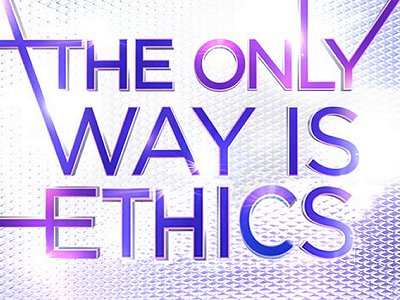
THE RULE OF THE FEW
The self-emptying of Christ should be our common pattern for leadership rather than the self-enrichment we see emerging today.
There is a central dilemma to power: the nearer we get to it, the more compromised we tend to become. This dilemma becomes acute where one who has spoken truth to power assumes the very authority they have judged. The revolt in Eastern Europe against communism led previously untested dissidents to positions of power; the leadership vacuum created by the collapse of totalitarianism could only be filled at that moment by those who had demonstrated moral integrity in public. The emergence of Aung San Suu Kyi from being a prisoner of her own home to parliamentary election in Burma has involved her in a series of decisions which some claim have sullied her reputation. It is difficult to make that judgment from where we sit, but it was always likely this would happen when she assumed responsibility.
It is no accident of chronology that Jesus’ political resolve was tested prior to his public ministry. He was to exercise phenomenal power and authority which would come to the attention of both the religious and secular powers of the era; they construed this, rightly, as a mortal challenge to the way they exercised leadership. The temptations in the desert showed that Jesus had the privilege of limitless resources and personal security; by eschewing their trappings, he demonstrated his readiness for public ministry. As Philippians 2: 6-7 observes of Jesus:
Though he was in the form of God, (he) did not regard equality with God as something to be exploited, but emptied himself, taking the form of a slave.
This self-emptying shaped his ministry and challenges our understanding of power today, especially given the worrying signs of its endemic abuse. The distance between governors and the governed is growing larger by the decade, even among states which loudly proclaim their democratic prowess. In France, the revelation in March 2013 that the budget minister, Jerome Cahuzac, was holding over half a million Euros in offshore accounts in Singapore and Switzerland led to what Le Monde described as a ‘profound democratic crisis’. Sadly, many electorates have come to expect this kind of double standard in their public officials.
There are many reasons for lack of voter participation, but one of the most powerful is the sense that participating in the democratic process makes no difference and is therefore not worth the effort.
If increasing numbers of us cannot be bothered to turn out once every five years to vote, in addition to our historic passivity between elections, it is not surprising that a permanent space is opening up between rulers and the ruled where accountability is weak and fraud and self-enrichment are prevailing temptations.
Ferdinand Mount, in The New Few (Simon and Schuster, 2012) is aggrieved by the way Britain has become susceptible to oligarchy: the rule of the few. He believes this is becoming entrenched through shameless pay differentials and small, self-perpetuating networks, where elites glide effortlessly between positions of power. Mount’s critique is especially potent because it comes from the man who was once Margaret Thatcher’s policy guru and thus cannot be written off as a default setting of the political left. For him, the radical conservative project to distribute power more widely has been hijacked by self-aggrandising elites. If this is true, there is nothing specific about its origins, for the development can be found across the world and in shockingly blatant forms in countries like China, India and Russia.
Whether this becomes a dominant trend of the new century remains to be seen. The concentration of power is not an inevitable outcome of the market’s operation before which we are helpless. Markets are products of human society and can be shaped by us to reflect the values we cherish. At the very least, we should be able to check the seamless and cavalier links which are developing between the worlds of business and politics across the globe, for it is out of this matrix that corruption most easily emerges. When we pray for wisdom for the world’s leaders, it is with particular regard to these temptations that we should intercede, that the self-emptying of Christ might be our common pattern for leadership rather than the self-enrichment we see emerging.
POPULAR ARTICLES

Obama's Covert Wars
The use of drones is going to change warfare out of all recognition in the next decades.

Through A Glass Starkly
Images of traumatic incidents caught on mobile phone can be put to remarkable effect.

What Are British Values?
Is there a British identity and if so, what has shaped the values and institutions that form it?


